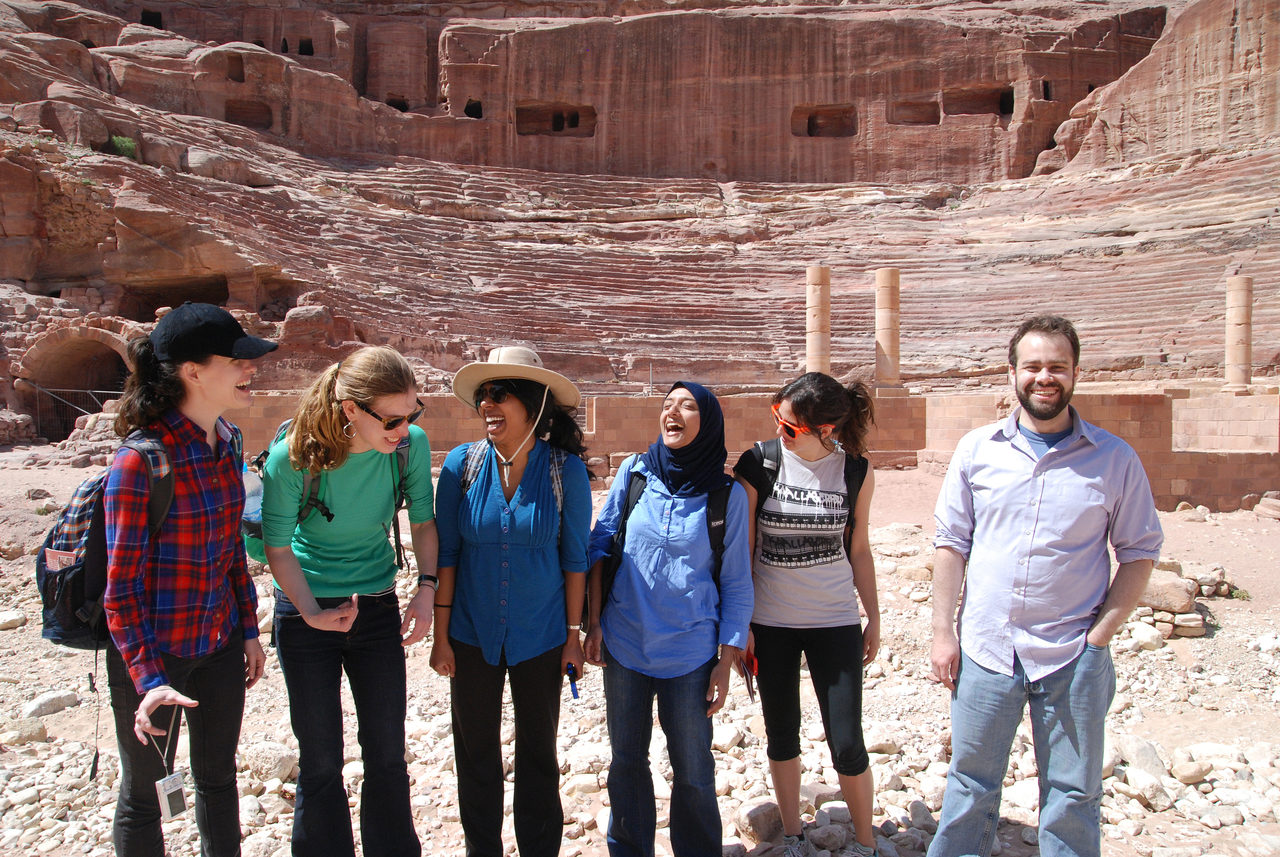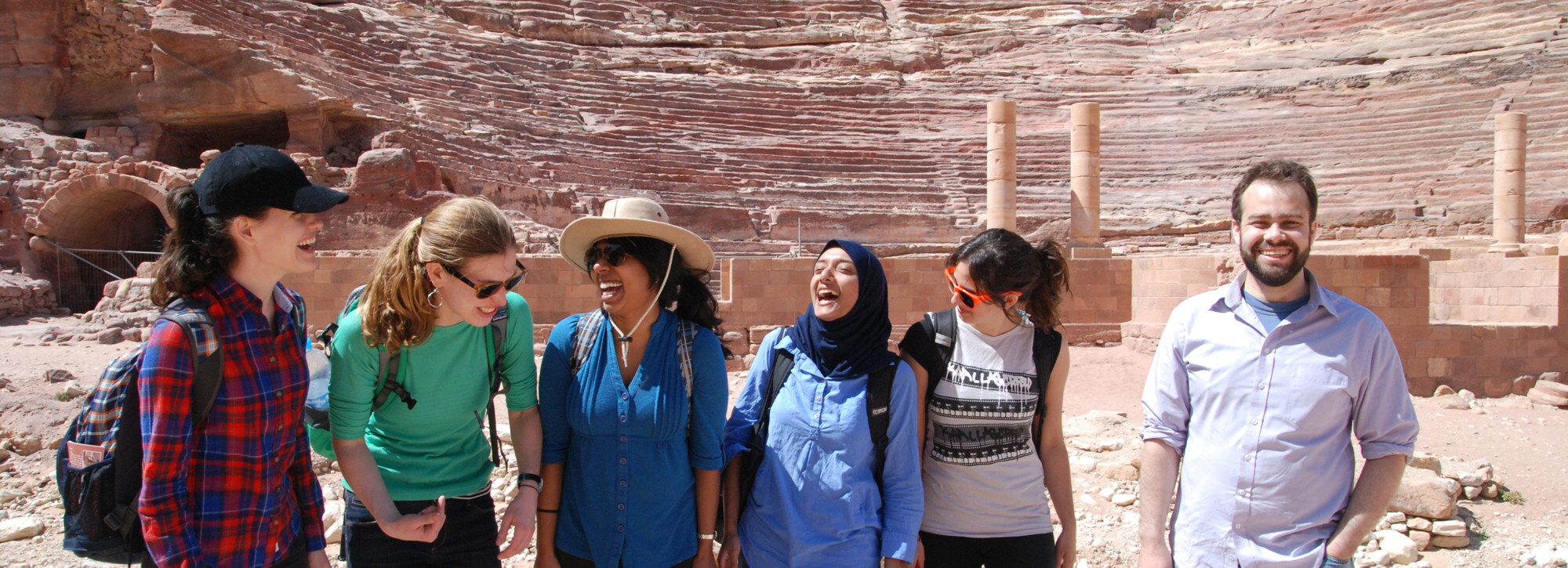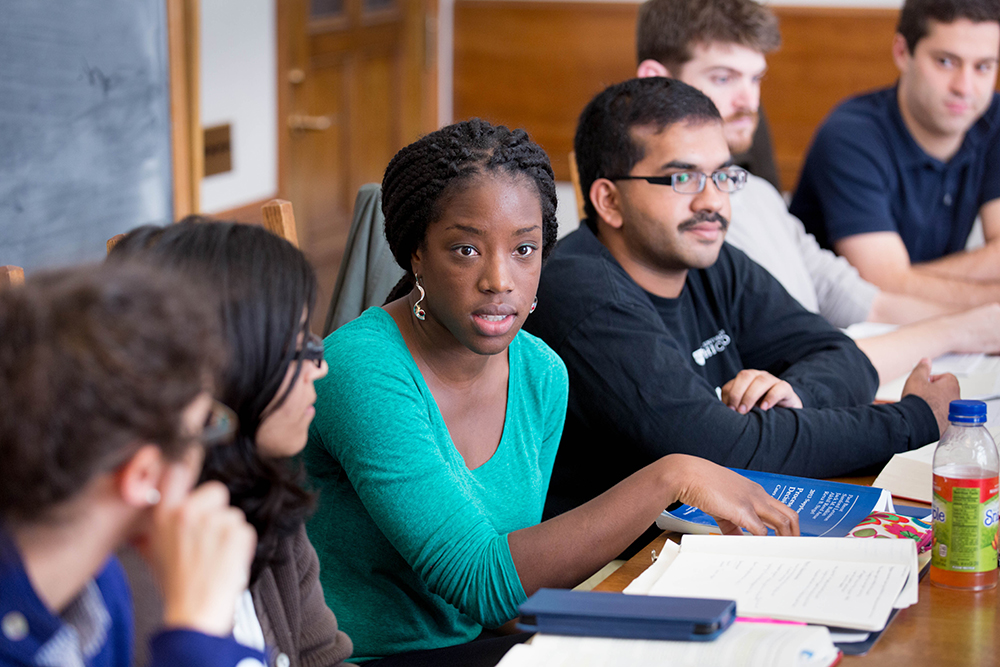Courses
Yale Law School offers an exceptionally broad range of classes that engage international, transnational, comparative, and foreign law issues. These courses are diverse in content as well as format, ranging from lectures to seminar settings to clinical and practice-oriented experiences. Unlike at most law schools, Yale Law students may start taking elective courses in the second semester of their first year. Listed below are a sampling of Yale Law School courses for 2023-2024 that relate specifically to international, transnational, comparative, or foreign law. Links are provided to the relevant YLS Bulletin entry and faculty bio for each class. In addition to these courses, students may pursue other scholarly interests through reading groups and through faculty-supervised independent research and writing projects.
- Advanced Comparative Law(Course# 20487); Instructor: T. Zhang; 2 Units; Limited Enrollment
- Advanced International Law and Foreign Relations in Practice(Course# 20718); Instructor: O. Hathaway; 1 to 2 Units; Faculty Permission
- Advanced International Refugee Assistance Project(Course# 30171); Instructors: S. Poellot, M. Prabhu, and A. Majeed; 2 to 3 Units; Experiential
- Advanced Legal Assistance: Immigrant Rights Clinic: Fieldwork(Course# 30203); Instructor: B. Haldeman and M. Abell; 1 to 4 Units; Experiential
- Advanced Lowenstein International Human Rights Clinic: Seminar(Course# 30174); Instructors: H.R. Metcalf and C. Flores; 1 to 4 Units; Experiential
- Advanced Lowenstein International Human Rights Clinic: Fieldwork(Course# 30274); Instructors: H.R. Metcalf and C. Flores; 1 to 3 Units; Experiential
- Advanced Topics in Third World Approaches to International Law: Directed Research(Course # 20154); Instructor: A. Bali; 1 to 4 Units; Faculty Permission
- Advanced Worker and Immigrant Rights Advocacy Clinic: Fieldwork(Course# 30130); Instructors: M. Wishnie and K. Tyrrell; 1 to 4 Units; Experiential
- Advanced Worker and Immigrant Rights Advocacy Clinic: Seminar(Course# 30129);Instructors: M. Wishnie and K. Tyrrell; 1 Unit; Experiential
- Bioethics and Law: Seminar(Course# 21257); Instructor: S. Latham; 2 Units; Open Enrollment
- Chinese Law and Society(Course# 20670); Instructor: T. Zhang; 2 Units; Limited Enrollment
- Health Justice Practicum(Course# 30186); Instructors: A. Kapczynski, G. Gonsalves, A. Miller, B. Moller, and D. Newton; 1 to 3 Units; Experiential
- Human Rights Workshop: Current Issues and Events(Course# 20134); Instructors: P.W. Kahn, and J.J. Silk; 2 Units; Open Enrollment
- Immigration Law(Course# 20611); Instructor: L. Guttentag; 3 Units; Open Enrollment
- International Humanitarian Law(Course# 20677); Instructor: I. Park; 1 Unit; Open Enrollment
- International Law(Course# 20112); Instructor: A. Bali; 4 Units; Limited Enrollment
- Introduction to Talmudic Law: Seminar(Course# 21265); Instructor: Z. Septimus; 2 Units; Limited Enrollment
- Legal Assistance Immigrant Rights Clinic: Fieldwork(Course# 30195); Instructors: B. Haldeman and M. Abell; 2 Units; Experiential
- Legal Assistance Immigrant Rights Clinic: Seminar(Course# 30194);Instructors: B. Haldeman and M. Abell; 2 Units; Experiential
- Lowenstein International Human Rights Clinic(Course# 30173); Instructors: H.R. Metcalf, and C. Flores; 4 Units; Experiential
- Religion and Constitution(s): Contrasting Models(Course# 20572); Instructor: P. Weil; 2 Units; Open Enrollment
- Roman Law(Course# 20776);Instructor: N. Lenski; 3 Units; Open Enrollment
- Sexuality, Gender, Health, and Human Rights(Course# 20568); Instructor: A. Miller; 2 Units; Faculty Permission
- The Unilateral Executive(Course# 20419);Instructor: J. Meshaw; 2 or 3 Units; Limited Enrollment
- Twenty First Century Tax Policy Challenges for the U.S.(Course # 20049); Instructor: M. Graetz; 2 to 3 Units; Limited Enrollment
- Worker and Immigrant Rights Advocacy: Fieldwork(Course# 30128); Instructor: M. Wishnie; 2 Units; Experiential
- Worker and Immigrant Rights Advocacy Clinic: Seminar(Course# 30127); Instructor:M. Wishnie; 2 Units; Experiential
- Advanced International Refugee Assistance Project(Course# 30171); Instructors:S. Poellot, M. Prabhu, and A. Majeed; 2 to 3 Units; Experiential
- Advanced Legal Assistance: Immigrant Rights Clinic: Fieldwork(Course# 30203); Instructors: B. Haldeman and M. Abell; 1 to 4 Units; Experiential
- Advanced Lowenstein International Human Rights Clinic: Seminar(Course# 30174); Instructors: H.R. Metcalf and C. Flores; 1 to 4 Units; Experiential
- Advanced Lowenstein International Human Rights Clinic: Fieldwork(Course# 30274); Instructors: H.R. Metcalf and C. Flores; 1 to 3 Units; Experiential
- Advanced Worker and Immigrant Rights Advocacy Clinic: Fieldwork(Course# 30130); Instructors: M. Ahmad, M. Wishnie and K. Tyrell; 1 to 4 Units; Experiential
- Advanced Worker and Immigrant Rights Advocacy Clinic: Seminar(Course# 30129); Instructors: M. Ahmad, M. Wishnie, and K. Tyrell; 1 Unit; Experiential
- Advocacy in International Arbitration(Course# 30212); Instructors: A. Reyes and B. Graham, J. Landy; 2 Units; Experiential
- Comparative Sentencing: Theory and Practice(Course# 21258); Instructor: R. Coffey; 2 Units; Open Enrollment
- Corruption, Accountable Government, and Democracy(Course# 21042); Instructor:S. Rose-Ackerman; 2 to 3 Units; Faculty Permission
- Health Justice Practicum(Course# 30186); Instructors: A. Kapczynski, G. Gonsalves, A. Miller, B. Moller, and D. Newton; 1 to 3 Units; Experiential
- Human Rights Workshop: Current Labor and Leisure(Course# 21193); Instructors: H.R. Metcalf and C. Flores; 1 Unit; Open Enrollment
- International Business Transactions(Course# 21209); Instructor:A. Chua; 4 Units; Limited Enrollment
- International Capital Markets: Law and Institutions(Course# 21593); Instructor: C. Jordan; 3 Units; Open Enrollment
- International Human Rights Law(Course# 21403); Instructor: A. Bali; 4 Units; Open Enrollment
- International Law(Course# 21763); Instructor: O. Hathaway; 4 Units; Open Enrollment
- International Refugee Assistance Project(Course# 30170); Instructors: S. Poellot, M. Prabhu, and A. Majeed; 3 Units; Experiential
- International Trade Law and Policy Seminar(Course# 21635); Instructors: D. Esty and G. Horlick; 3 Units; Limited Enrollment
- Law and the Legal System through the Lens of Latina/o Communities(Course# 21304 ); Instructor:D. Lopez; 2 to 3 Units; Open Enrollment
- Legal Assistance Immigrant Rights Clinic: Fieldwork(Course# 30195); Instructors: B. Haldeman and M. Abell; 2 Units; Experiential
- Legal Assistance: Immigrant Rights Clinic: Seminar(Course# 30194); Instructors: B. Haldeman and M. Abell; 2 Units; Experiential
- Lowenstein International Human Rights Clinic(Course# 30173); Instructors: H.R. Metcalf, and C. Flores; 4 Units; Experiential
- Research Methods in Foreign and International Law(Course#21487); Instructors: L. Olejnikova and E. Ma; 2 Units; Open Enrollment
- Rights of Nature, Human Rights and the Arts(Course# 21668); Instructors: J.J. Silk and D. Bonilla; 2 Units; Faculty Permission
- Seminar in Private Law: Globalization and Deglobalization at the Nexus of Public and Private Law(Course# 21497); Instructor: D. Markovits; 2 to 3 Units; Limited Enrollment
- The Russo-Ukraine War(Course# 21539); Instructors: E.R. Fidell and M. Donovan; 2 Units; Open Enrollment
- Third World Approaches to International Law: Seminar(Course# 21149); Instructor: A. Bali; 2 Units; Faculty Permission
- U.S. Foreign Relations and National Security Law(Course# 21247); Instructor: H.H. Koh; 4 Units; Open Enrollment
- U.S. International Taxation(Course# 21100); Instructor: J.M. Samuels; 3 Units; Open Enrollment
- Worker and Immigrant Rights Advocacy: Fieldwork(Course # 30128); Instructors: M. Ahmad, M. Wishnie, and K. Tyrrell; 2 Units; Experiential
- Worker and Immigrant Rights Advocacy Clinic: Seminar(Course# 30127); Instructors: M. Ahmad, M. Wishnie, and K. Tyrrell; 2 Units; Experiential
The academic curriculum in international law is varied and offers students exposure to a wide range of topics. They include larger courses, such as Comparative Law (taught by Jim Whitman), Introduction to Transnational Law (Oona Hathaway), International Business Transactions (Amy Chua), International Commercial Arbitration (Michael Reisman), International Human Rights Law (Jim Silk), Public Order of the World Community (Michael Reisman and Lea Brilmayer), International Criminal Law (Mirjan Damaska), International Courts and Tribunals (Lea Brilmayer), International Investment Law (Michael Reisman), and Comparative Constitutional Law. The curriculum also includes a variety of smaller more specialized seminars, such as Rights in a Comparative Perspective; Contemporary Legal Issues in Africa; Climate Change Law, Theory, and Practice; Laws of War; The Role of a Judge in a Democracy; Islamic Law and Policy; Peacemaking; Political Economy of Migration; the International Financial Crisis; Immigration and Citizenship Policies; Global Health Ethics, Politics and Economics; Human Rights and Difference; Comparative Immigration and Citizenship Laws and Policies; the Judicial Role in Constitutional Interpretation; Law and Social Movements; Military Justice; and The Role of a Judge in a Democracy, to name just a few.
Workshops
True to the spirit of Yale Law School, which aims to include students in academic debates and discussions, there are several courses in the international area that expose students to cutting-edge academic and legal debates—frequently allowing them to engage outside academics or practitioners as active participants in a conversation over cutting-edge legal issues. These include the Chinese Legal Reform Workshop, Human Rights Workshop, and the Law and Globalization Workshop. Some of these specialized courses allow students to focus on particular regions of the world. For example, an innovative research seminar offered students an opportunity to compile and edit materials from truth commissions in South Africa and other countries.
Students are also active participants in the creation of courses at Yale Law School. Many students recruit faculty sponsors, and design their own reading groups and independent study on international topics. Reading groups in just the last few years include Contemporary Legal Issues: Canada; Global Political Economy; International Criminal Law: Cambodia; Middle East Law; Insurgency, Counterinsurgency and Law; Transnational Justice in Cambodia; Latin American Reading Group; Criminal Justice in China; Reproductive Rights and International Law; Peace, Order, and Good Government; Sanctions, Economic Warfare, and Law; Transitional Justice; Genocide and Mass Atrocities; Foundational Texts in International Law; Health Law and Policy; Law and the Postcolony; Women, Law and Economic Development; Argentina and Chile Civics; Brazil Civics; and Immigration Theory and Practice. Students sometimes even propose ideas for seminars that professors embrace. For example, Professor Paul Gewirtz taught a seminar, Issues in American Foreign Policy, which grew out of the interests of many Yale Law School students in international law and foreign policy.
Yale also offers extensive hands-on courses that address international law or transnational law and policy. These and other special curricular offerings help prepare students for a global legal practice. Some examples include:
The Lowenstein International Human Rights Clinic offers students an opportunity to work on a wide range of human rights projects on behalf of human rights organizations and individual victims of human rights abuse. The practical experience provided by these and other clinical courses is supplemented by legal research classes that train students how to find and use international legal materials.
The International Law and Foreign Affairs Seminar gives students an opportunity to work with the Department of State and Congress on current legal and policy challenges.

The Worker and Immigrant Rights Advocacy Clinic represents immigrants, low-wage workers, and their organizations in labor, immigration, criminal justice, civil rights, and other matters. The clinic docket includes cases at all stages of legal proceedings in Immigration Court, the Board of Immigration Appeals, U.S. District Court, the Second Circuit, and before Connecticut state agencies and courts. Its non-litigation work includes the representation of grassroots organizations, labor unions, and other groups in regulatory and legislative reform efforts, media advocacy, strategic planning, and other matters. All students handle at least one litigation and one non-litigation matter, and have the opportunity to explore multiple practice areas.
The Goldman Sonnenfeldt Environmental Protection Clinic addresses environmental law and policy problems on behalf of client organizations such as environmental groups, government agencies, and international bodies. The Clinic has a special focus on advocacy to promote solutions to global warming, but also engages in advocacy on other complex and significant environmental issues. Among its recent projects, the clinic represented a new organization dedicated to assisting Pacific Island nation states with international global warming negotiations. Clinic students participated in the Copenhagen climate negotiations in December 2009, and the technical follow-up sessions in Bonn in June 2010, engaging in research to support the Island nations in advocating for effective international global warming policies.
International Refugee Legal Assistance Project affords students an opportunity to examine the Middle East's gravest humanitarian crisis in generations as well as broader issues in refugee law and policy. Class sessions combine project rounds with a consideration of the development and content of the international refugee legal regime, United States policy toward refugees, and the particulars of the Iraqi refugee crisis.
Yale University offers exceptional resources for developing and deepening intellectual interests spanning geographic regions and academic disciplines. Home of one of the oldest interdisciplinary programs in International Relations, the Whitney and Betty MacMillan Center for International and Area Studies at Yale has numerous interdisciplinary faculty councils, centers, committees, and programs. These provide opportunities for scholarly research and intellectual innovation, and encourage faculty and student interchange for undergraduates as well as graduate and professional students.
After the first term, YLS students may opt to take a limited number of courses in other parts of Yale University for Law School credit. Such courses must be relevant to the student’s program of study in the Law School or planned legal career. Students should consult the YLS Bulletin for permission requirements and further information. Bulletins from other schools within the University are available online.
Among various joint degree options, Yale Law students interested in international affairs may wish to consider a four-year J.D-M.A. with Yale’s Jackson School of Global Affairs. Students may choose a regional specialization such as Africa, East Asia, Latin America, the Middle East, or Russia and Eastern Europe. To complete the joint degree, students must complete the requirements for the Global Affairs degree, though only a total of 12, not 16, courses are required. None of these courses may be Law courses though two of the Global Affairs concentration requirements may be obtained through courses at Yale Law School. Students must also petition the Law School's Special Course of Study committee and complete the requirements for the J.D. degree.

